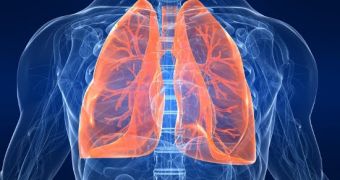Courtesy of several technological advances, it might not be long until a simple breath test is used to diagnose lung cancer.
Scientists speaking at today's annual meeting of the European Respiratory Society detail the outcome of a series of experiments designed to test the effectiveness of a so-called electronic nose.
This nose is designed to analyze the chemical makeup of a person's exhaled breath and use this information to determine their lung cancer risk.
The researchers explain that, as shown by several previous investigations, some animals are quite gifted when it comes to detecting various medical conditions based on how a person's breath smells alone.
The electronic nose used in these experiments mimicked the behavior of such animals, EurekAlert informs us.
More precisely, it “sniffed out” the volatile organic compounds (otherwise known as VOCs) in different breath samples and, based on their profiles, it rolled out a diagnosis.
As the researchers who worked on this project explain, each person lets out different VOCs when they breathe, depending on the health of their lungs.
When used to test breath samples collected from 252 people diagnosed with lung cancer and 210 smokers, the electronic nose correctly identified 128 individuals belonging to the first group and 114 belonging to the second as suffering with said medical condition.
Only 5 patients in the first and in the second group, respectively, were erroneously diagnosed with lung cancer, the same source tells us.
Commenting on the outcome of this series of experiments, Maris Bukovskis at the University of Latvia stated as follows:
“We have shown that it is possible to use breath tests to correctly identify lung cancer with a high sensitivity rate. The results of our study take us one step further to understanding this important new technology.”
“Our research has shown us why research into VOCs is important and how we could use this to understand more about the way diseases develop and progress,” scientist Immanuels Taivans further argued.

 14 DAY TRIAL //
14 DAY TRIAL //